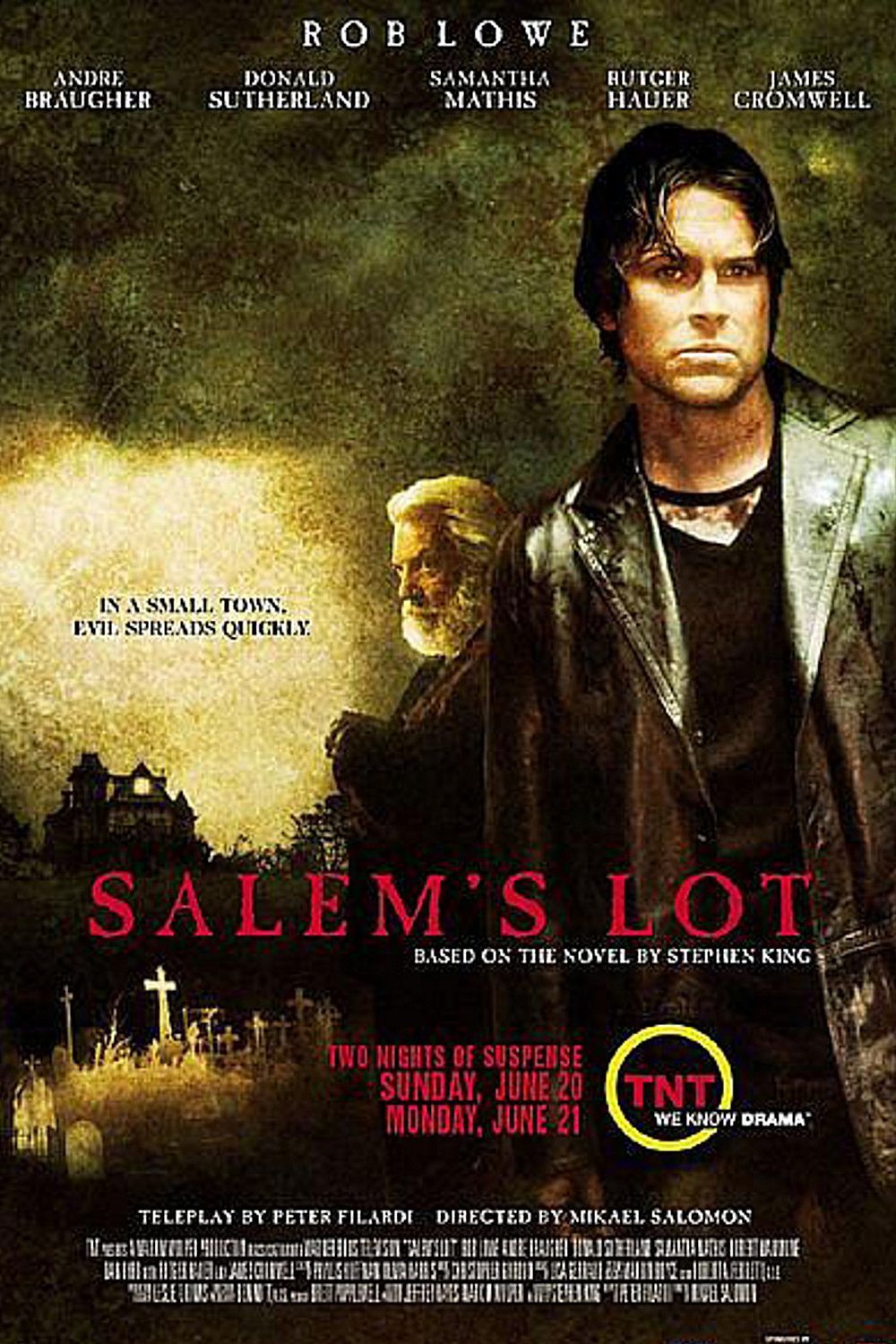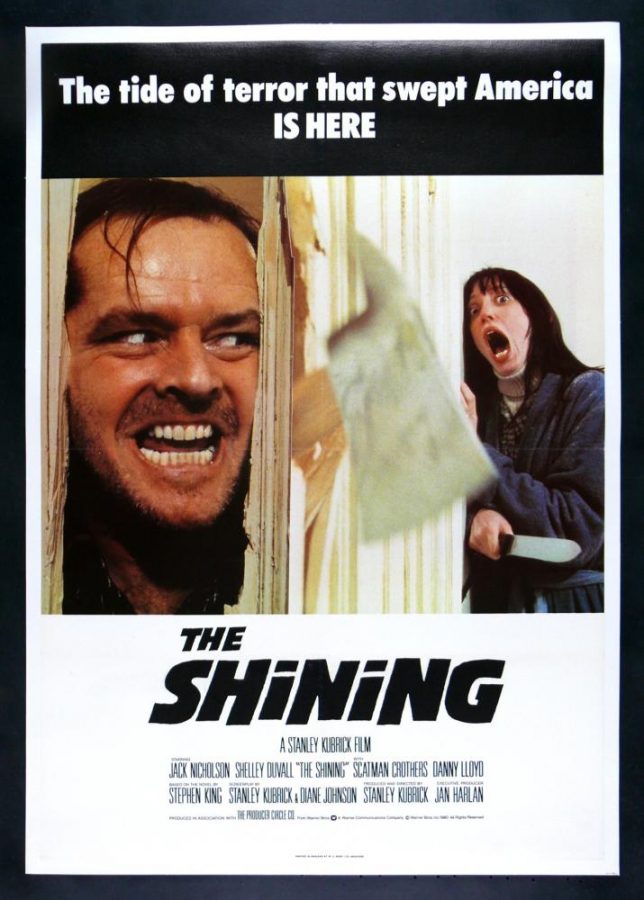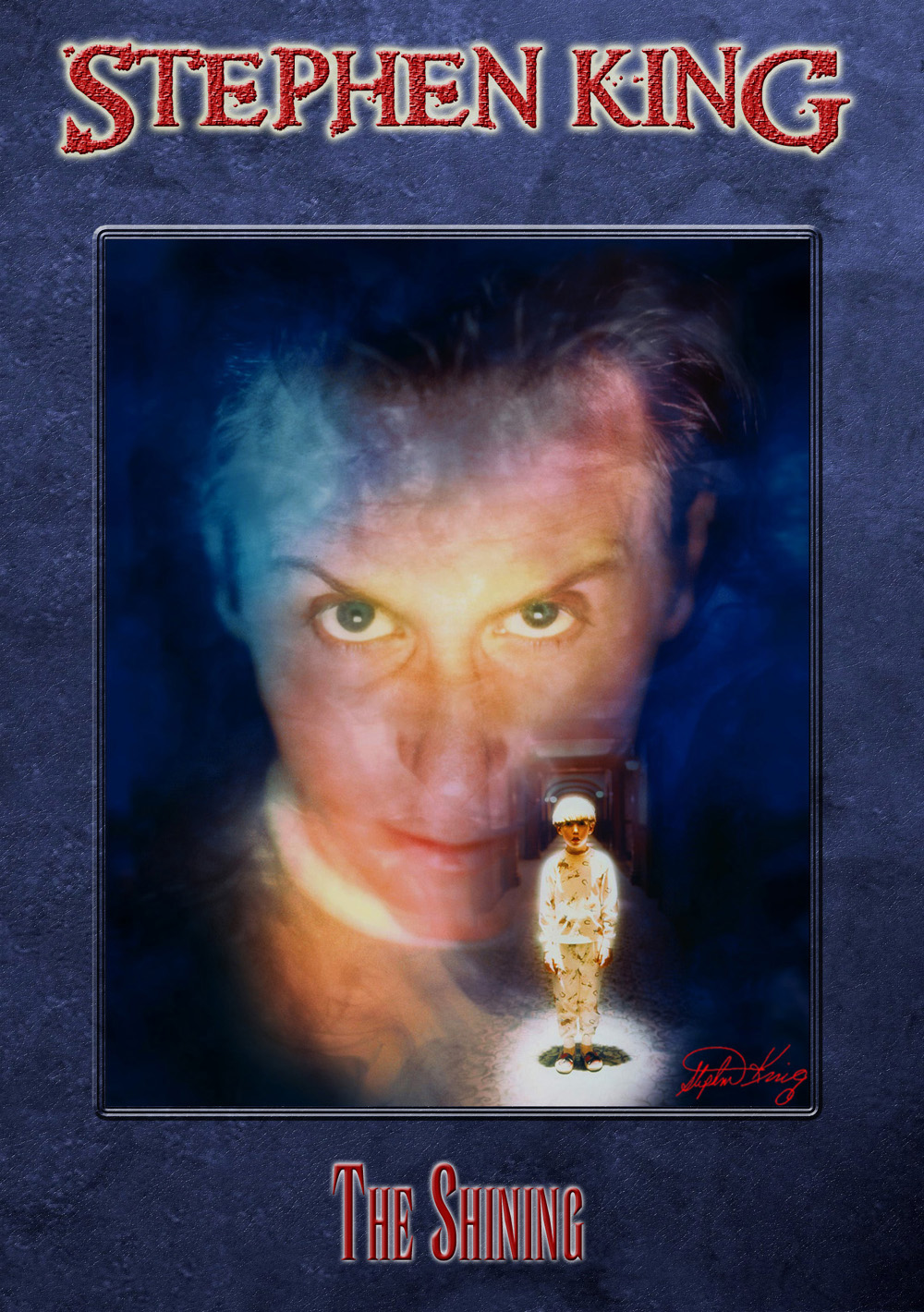The Shining (1977)
This one has been quite long in the making and I apologise for the lateness of this post. In fact, I actually finished the book in August and I admit that in the last five months I've barely gotten through the first half of
Rage. Blame the school and my laziness. But also the shittiness of
Rage and the fact I knew this was going to be a long post.
Anyway, King's third novel was a huge success and it still is one of SK's most well-known horror works among the general public - of course, for many there are somewhat blurred lines between the book and its Kubrick-directed adaptation (more on that one later), but that's pretty much expected. Let me say this right now, before we proceed - I have already said it many times in the past (and I could swear I have already said so even on this very forum, but I can't be bothered to look after that post) and I guess my opinion hasn't changed: this book is not only Stephen King's greatest achievement, but it is also one of the most striking works of modern US literature, weird as it may sound. Indeed - if there
has been a Great American Novel written in the past 50 years or so, I just might put my money on
The Shining being it.
Now, before I'll lose
any of my remaining credibility, let's explain as fast as I can. The reason for this is that for a horror novel (and it
is a good horror novel, there's no doubt about that) it contains quite a lot of stuff that not only tells us about the main characters and America in general, but because of the fact the book is mainly a horror novel, that stuff is mentioned mostly in the background, in passing, so its intentional vagueness adds to the mystique
and makes it look like the novel talks about more than it actually talks about. But I'll get to that in a while.
On the inspiration of the novel: On October 30, 1974, King and Tabby checked into The Stanley Hotel
in nearby Estes Park, Colorado. They were the only two guests in the hotel that night.
"When we arrived, they were just getting ready to close for the season, and we found ourselves the only guests in the place — with all those long, empty corridors." King and his wife had dinner that evening in the grand dining room, totally alone. They were offered one choice for dinner, the only meal still available. Taped orchestral music played in the room and theirs was the only table set for dining.
"Except for our table all the chairs were up on the tables. So the music is echoing down the hall, and, I mean, it was like God had put me there to hear that and see those things. And by the time I went to bed that night, I had the whole book in my mind." You probably can tell that atmosphere like this writes the book by itself and he captures it perfectly on its pages. It has been said many times that hotels in general are unnerving places on their own. Part of it is possibly pragmatic - despite all the effort and maids cleaning up, you can't help but to think how many people there were sick or dying or doing...
strange things in the very room you were in - but it might be partly also because of the very philosophy thereof - here is a place that made sleepovers into an industry, a place which you make your home for a night, yet it is completely depersonalised and dehumanised ("DON'T YOU REALISE???" *ahem, never mind) and as such it might bear the ideas and thoughts of its previous inhabitants, let alone the presence of the people they indeed actually
died there (and I do not necessarily mean all that in a metaphysical way, although that one too), yet all of these are unwanted.
King actually uses this to create both the horror "meat" of the book and its background and eventually its greater message as well. The supernatural part of the story consists mainly of the hotel being both somehow "alive" and stuck in a strange time warp where the former guests reappear, "enjoy the party" and interact with the main characters. Throughout the book we also watch as Jack is slowly consumed by an irresistible obsession with the hotel, its history, its previous inhabitants and slowly realising that there is a much darker side to this hotel (and possibly other hotels as well) than he previously thought. I know I'm going to sound crazy, but it was these small glimpses that thrilled me the most about the book. Both the scrapbook (who created it? Who wrote those cynical comments?) and the other stuff that Jack found in the basement (an old menu, a doll, the snippet "Medoc, are you here // I've been sleepwalking again my dear // The plants are moving under the rug") seems familiar, yet strangely otherworldly. It all makes you think of many other older stories that you might have been a part of but just as well might have not. And - and these are more or less Jack's thoughts quoted verbatim - it makes you think of how many parties there were, what deals had been made here, what did these people drink and think, what did they dance to? How did all those rich people spend the time here then, between the two wars, celebrating the victory and thinking the world is theirs? Our lives are built on a comfy cushion of past, of all those storylines and events that shaped the world that we actually live in and Jack starts to realise this somewhere here, too. "It's all forgotten now", as a jazz standard would have put it (again, more on that later), but the nights were young and fresh and thrilling, the people were shivering before their first kisses and dances or their first rendezvous with prostitutes. And yes, as Balzac said,
"behind every great fortune there is a great crime", or - to be more precise -
"The secret of great fortunes without apparent cause is a crime forgotten, for it was properly done." The Shining does not shy away from the fact that many of those millionaires were, for all intents and purposes, actually gangsters. That's the dark, moist underbelly that Jacks sees, tries to confront Ullman about and is eventually most fascinated and pulled by. With Horace Derwent being a thinly veiled homage to Howard Hughes and the fact so much of Vegas and other business was handled by the mob in the first half of the 20th century, this is the background that I find really interesting. And I'd really, really like to be a fly on the wall in any of those hotels. Or other places, you know what I mean. Jack would, too, and the hotel tries its best to use this intrique and pull him in deeper. Also, again, how many people have actually died there? But like I mentioned in the third paragraph, it's all vague enough to be just a background info, a setting for the play, yet it also gives us a lot of social commentary. We often idealise the past, but the past is often just as dirty and unpleasant as the present is. The "endless party" aspect was quite fascinating, yet very, very creepy.
(Also - funnily enough, Danny's "shining" ability makes him more susceptible to the hotel's supernatural torment, yet it pretty much never tells us anything about the hotel's history we wouldn't already know beforehand and all of our spotty information is mainly gained through Jack's efforts.)
There's also something about the soundtrack to the Kubrick adaptation that's connected with this, but I'll discuss this in the adaptation's review.
But although everything I said above is essential to the book and very well put, it's not what
The Shining is actually about. At the risk of sounding banal, let me say that eventually, this novel is about the family and especially its head, Jack Torrance. King is almost certainly autobiographical here, since Jack is also a writer, he has a "gifted" child and is an addict. Yet - and I can't stress how unbelievable this is - the prophetic feel of this novel is uncanny. He manages to vividly capture the family in its phase of decay, all those nasty thoughts and things people do to each other when they've beel already together for some time. All the inner turmoil and repressed hatred (in the worst cases), the blame shifting and guilt swinging, the writer does show how the most important secular relationship and the "backbone of the society" slowly erodes and makes its participants a little bit worse and more reprehensible in the process. And, to top it of, this book contains some of the most honest and direct, sickening and bare demonstration of alcoholism I have ever witnessed. We slowly watch Jack spiral back into addiction, after seeing him (via flashbacks) in the place nobody wants to go to - the endless party where only skeletons dance eventually. To quote Danny Elfman,
"I'm all dressed up with nowhere to go // Walkin' with a dead man over my shoulder // Waiting for an invitation to arrive // Goin' to a party where no one's still alive... It's a dead man's party who could ask for more? // Everybody's comin', leave your body at the door // Leave your body and soul at the door." Indeed, we watch the protagonist trying to keep that spark, that vigour, that "party" even as everyone with a little bit of sense (like his friend Al) tries to run away as fast as they can. And we are presented with the result, the devastating effects on Danny and Wendy, the only people Jack thinks he cares about, before we realise that, unfortunately, he just might care about himself a bit more. Gluttony, Wrath, Envy and Pride are Jack's combo of mortal sins, and man, does he make use of all of them. When I first read the book in high school, I didn't really understand these parts, I admit as much, but re-reading the stuff now when I'm older, it's really gut-wrenching to watch him try to (albeit involuntarily) destroy as many lives as possible along with his in the process. The lashing out of a hurt, shamed addict - just go and re-read the telephone conversations first with Ullman and then with Al. When Danny tries to read him and sees all the stuff in his head, it's pretty accurate, yet vague and it really makes you think.
Why do I find it so interesting? Well, although King's addiction later spiraled out to possibly similar proportions (I'd recommend you to go and read the autobiographical parts of
On Writing if you haven't already) and he
had been married for some time when this book was written, I seriously doubt he had the
experience by then. In
On Writing he admits that he wrote
The Tommyknockers as an allegory of his addiction and didn't even realised it at first... and that was in 1987, ten years later. That makes it very prophetic and also kinda creepy, as if his very own subconsciousness tried to warn him beforehand and failed. The description of marriage that was entered and then never worked upon and therefore now reaching its expiration date becomes more and more haunting with each re-read. In that way, I can safely say that the book works for me on every level possible, forty years later, after 20 readings or so.
Anyway, enough about Jack - I think that the book actually did a pretty good job with Wendy, giving us insight in her history and life and explaining why she puts up with all this as long as she does
without picturing her as a mere victim of domestic abuse. She is believable and interesting and you
can kinda feel why Jack hates being outshined by her (in the field of common human decency) so much. Danny... is a believable child character with outstanding abilities. I probably can't quite comment on that any further. The chapter with the doctor in Boulder is quite amazing, though and gets me every time. However, I'd like do stress that I
really like Dick Hallorann. One of my favourite King's character ever, in fact. He just...
shines, you know? And no, that's not just a bad pun. I could imagine reading a whole book dedicated to him. Interestingly enough, he cropped up again nine years later as a bit character in
It, but he has much less space there and I wasn't even sure if it wasn't just a re-use of the same name.
Connected with the above, King's style here is phenomenal. He manages to pull it all off and tells the reader everything this novel is supposed to tell him. In some ways, he was still a beginner and some of the homages and shout outs are not as subtle/precise/natural as it might have been later (just see the huge Poe obsession, that's quite heavy-handed), but I'll give him a pass in that regard, both because the results are quite extraordinary and because I don't have to squint all that much to overlook it. (OK, that one was
also not a pun. Anyway...)
@Ariana @Mosh @Cornfed Hick @mckindog @Maturin Any thoughts?
The music mentioned within:
As mentioned above, there's a lot of time spent on the interbellum party, so there are a lot of old standards mentioned. Some of these are of later origin, but that's not an anachronism, as the hotel floats throughout various periods. These are namedropped:
(only Ticket to Ride, but it's hard to find a swing version thereof, so the medley will have to do)
To be continued, because of the forum's YT link limitation.






 (only joking, I know he read the book many times over and called King in the middle of the night ... but what for?)
(only joking, I know he read the book many times over and called King in the middle of the night ... but what for?)

